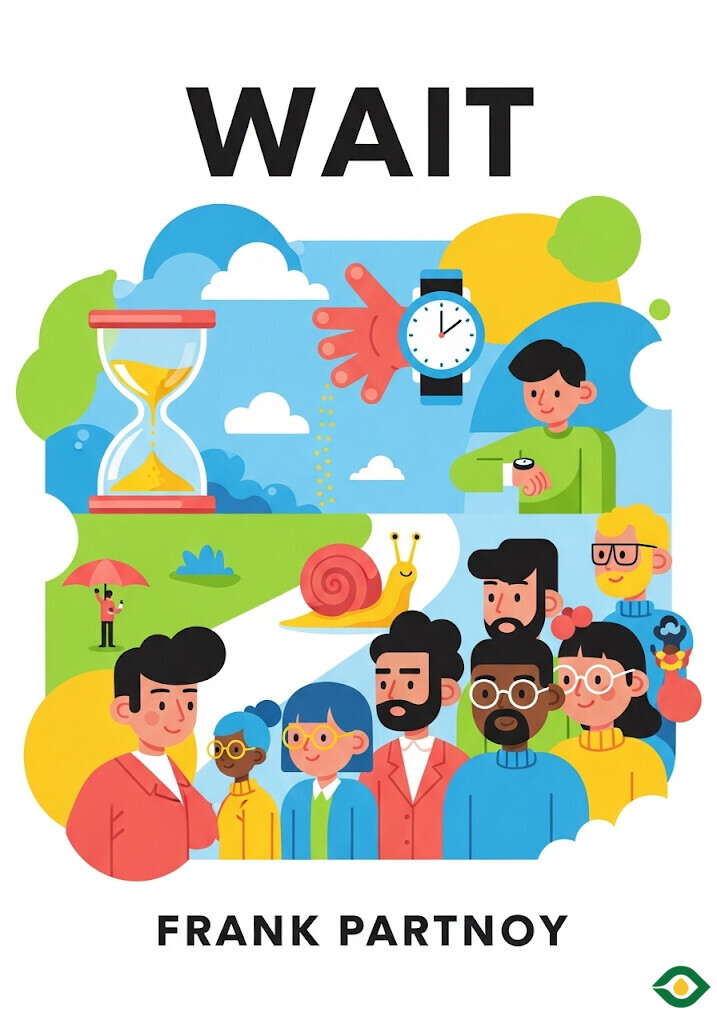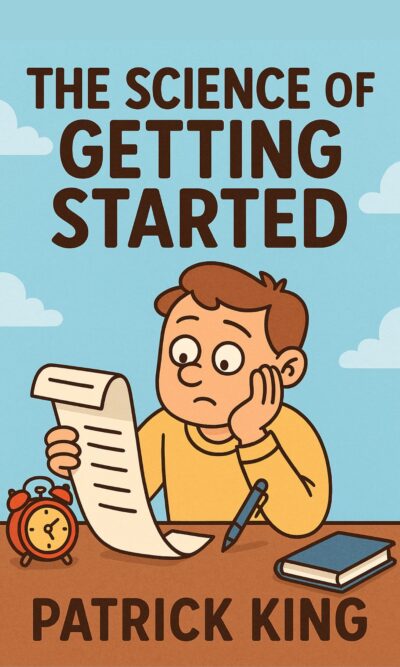Description
Timing is one of the most underestimated skills in human life. We are often told that speed is everything, that acting quickly means winning. Yet many of the world’s best athletes, leaders, thinkers, and investors know a different truth: sometimes waiting, hesitating, or even procrastinating is the smarter choice. Success often belongs not to the fastest, but to those who know exactly when to move, when to pause, and when to act with patience.
Think about tennis. At first glance, it looks like a game of lightning-fast reactions. A ball flies over the net, and the player must hit it back as quickly as possible. But that is not what separates the champions from the amateurs. Almost everyone needs about 200 milliseconds to even register that the ball is moving. What makes a top player exceptional is the ability to wait just long enough before swinging. That brief pause—sometimes only a fraction of a second—allows them to take in more information, anticipate the opponent’s shot, and return the ball with precision. The best athletes are not rushing; they are mastering the rhythm of time.
This lesson extends far beyond sports. Financial markets once believed that speed alone meant profit. High-frequency trading became the norm, with firms investing millions to reduce the time it took to complete a trade by milliseconds. At first, this seemed profitable. But traders soon discovered that going too fast created chaos. Volatility surged, mistakes multiplied, and in some cases, entire markets crashed within minutes. The surprising reality was that slowing down—just slightly—actually led to better, safer profits. Here again, timing, not sheer speed, proved to be the winning factor.
Timing also influences how we think and behave in subtle, unconscious ways. Subliminal messages, for example, work by appearing for only a brief moment—so quick that we cannot consciously notice them, yet long enough to affect our subconscious. Studies have shown that flashing certain logos or words can shift behavior, mood, or creativity. People exposed to positive associations may become more imaginative; those exposed to negative cues might grow hesitant or even adopt slower walking patterns without realizing it. These examples reveal how even milliseconds of exposure can quietly shape our actions.
In high-pressure decision making, timing determines whether instinct or patience serves us better. Experienced experts, such as firefighters or military leaders, often rely on split-second instincts built through years of practice. Their timing feels natural because they have seen similar patterns many times before. But when faced with new or unfamiliar situations, even experts must slow down. Without pausing to reflect, they risk disastrous errors. One tragic example involved a naval commander who, under pressure and with incomplete information, made the fatal choice of shooting down a civilian aircraft, believing it to be hostile. His error reminds us that timing includes knowing when to trust intuition and when to delay and gather more information.
The role of timing also becomes clear in social interactions and relationships. Consider dating. Modern culture often encourages instant decisions based on appearances, whether in speed-dating events or swiping through online profiles. Yet meaningful connections rarely emerge in such rushed encounters. Taking time to listen, to observe, and to think usually leads to wiser choices in relationships. Even something as simple as planning a first date over lunch can strike the right balance: long enough to get a genuine impression, but short enough to avoid rushing into decisions before you are truly ready.
Our brains, however, often work against us in matters of time. Humans naturally prefer short-term rewards over long-term benefits. If offered fifty dollars today or one hundred dollars in the future, many will choose the smaller reward immediately. This bias explains why procrastination is so common. We postpone unpleasant tasks like taxes or repairs because the immediate comfort of delay feels more appealing than the long-term benefit of responsibility. Surprisingly, procrastination is not always harmful. Sometimes delaying a decision gives us more time to think, compare options, or avoid costly mistakes. But when procrastination becomes a habit, the long-term consequences—such as broken cars, mounting bills, or missed opportunities—outweigh the short-term relief.
Some of the most successful people in the world have mastered the art of productive delay. Warren Buffett, one of the greatest investors, is famous for waiting patiently before making big decisions. He studies, reflects, and observes the market daily, but he does not rush to act. Instead, he waits for the perfect opportunity, then moves decisively. Former President Barack Obama also used timing strategically. In tense interviews or high-stakes political moments, he would pause, delay, and carefully choose his words. By not rushing into answers, he avoided traps and kept control of the conversation. Their examples show that waiting is not weakness; it is a form of strength.
Another important area where timing matters is in how we judge others. Many of our first impressions are based on gut reactions. While this works well in some cases, it often leads to unconscious bias and unfair treatment. Studies reveal that even trained professionals, such as doctors, sometimes make decisions that favor one group of people over another without realizing it. These biases are often automatic, the result of rapid judgments. Yet research also shows that when people take more time to think—just a few extra minutes—they often make fairer, more accurate evaluations. Delaying judgment can literally save lives.
The key lesson across all these examples is simple but powerful: timing is not just about moving quickly. It is about knowing when to wait, when to act, and when to let time itself work in your favor. Waiting does not mean being passive. It means being attentive, alert, and prepared to act when the right moment arrives. Whether you are competing in sports, trading in financial markets, making personal decisions, or building relationships, the ability to control your sense of time often separates success from failure.
So how can we apply this in daily life? First, recognize that rushing is not always necessary. Slowing down often brings clarity. Second, accept that procrastination, when measured and intentional, can actually help you make better choices. Third, pay attention to moments when instinct serves you, and also know when reflection is required. Finally, practice patience. The world moves quickly, but you don’t have to. By choosing your moments carefully, you give yourself the best chance of success.
In the end, life is not just about doing things fast. It is about doing things at the right time. Those who master this balance—between waiting and acting—find greater success, stronger relationships, and deeper satisfaction. Timing, more than talent or luck, may be the hidden key to living well.





